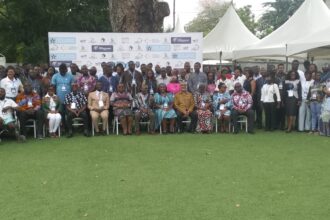Imani Centre for Policy and Education, a think tank, has urged the government to consider committing adequate resources into Ghana’s renewable energy systems to boost the country’s capacity to exploit its abundant natural energy sources.
It observed that while the government had many policies on renewable energy, there was the need for concerted action to create a real market and incentives for the private sector to invest in renewables such as solar, wind, biogas, biomass and wind energy.
“As a country, we are prepared to use $4 billion to develop oil resources and billions to build dams, but we do not seem prepared to use the same amount of money or even a fraction to develop renewable resources,” it stated.
Event
At a joint seminar on energy strategies in Africa in Accra yesterday, a Senior Vice-President of IMANI, Mr Kofi Bentil, said the allocation of adequate resources into renewable energy would generate enough power for Ghanaians, particularly those in rural areas.
“If we can figure out managing a financial arrangement around renewable energy, we may be able to deploy more of those resources for people to use since renewables have many advantages for people to better their lives,” he stated.
The event, themed: “Potential of renewable energy to meet Africa’s energy supply”, brought together energy experts from the public, private and civil society organisations to identify challenges facing the country’s energy systems and figure out plans to address those bottlenecks.
‘Energy-rich but poor’
Mr Bentil observed that most African countries, including Ghana, even though had rich natural energy sources, were poor in terms of energy production and utilisation.
He further indicated that the African continent had millions of barrels of oil, adequate wind and sunshine, yet it was among the least beneficiary of fossil fuels, wind and solar energy in the world.
Contrasting the case of Africa with that of the developed world, he said Belgium, a country with 11 million people and a land size as that of the Ashanti Region, produced as much energy as the whole of Africa.
According to him, while fossil fuels were easy sources of energy, they were expensive in terms of environmental impact and cost.
“When you get them out, they are expensive to manage as you need tank farms, tankers, pipelines and expensive infrastructure to manage. And when you have to use them, they also cause pollution to the ozone layer.
“It cost Ghana over $4 billion to get oil out of the ground, and to raise the money to get it done, we have to more or less sign off the whole resources which we get only 10 per cent for,” Mr Bentil stated.
Advantages
A research associate at the Centre for Renewable Natural Resources at IMANI, Ms Barbara Andoh, said with the abundance of renewable energy in Ghana and Africa, “we will be shooting ourselves in the foot if we are not taking advantage of renewables”.
In her opinion, Ghanaians must be motivated to take advantage of renewable energy since it offered quick gains in terms of job creation and the environmental benefits.
Source: Graphic.com.gh














